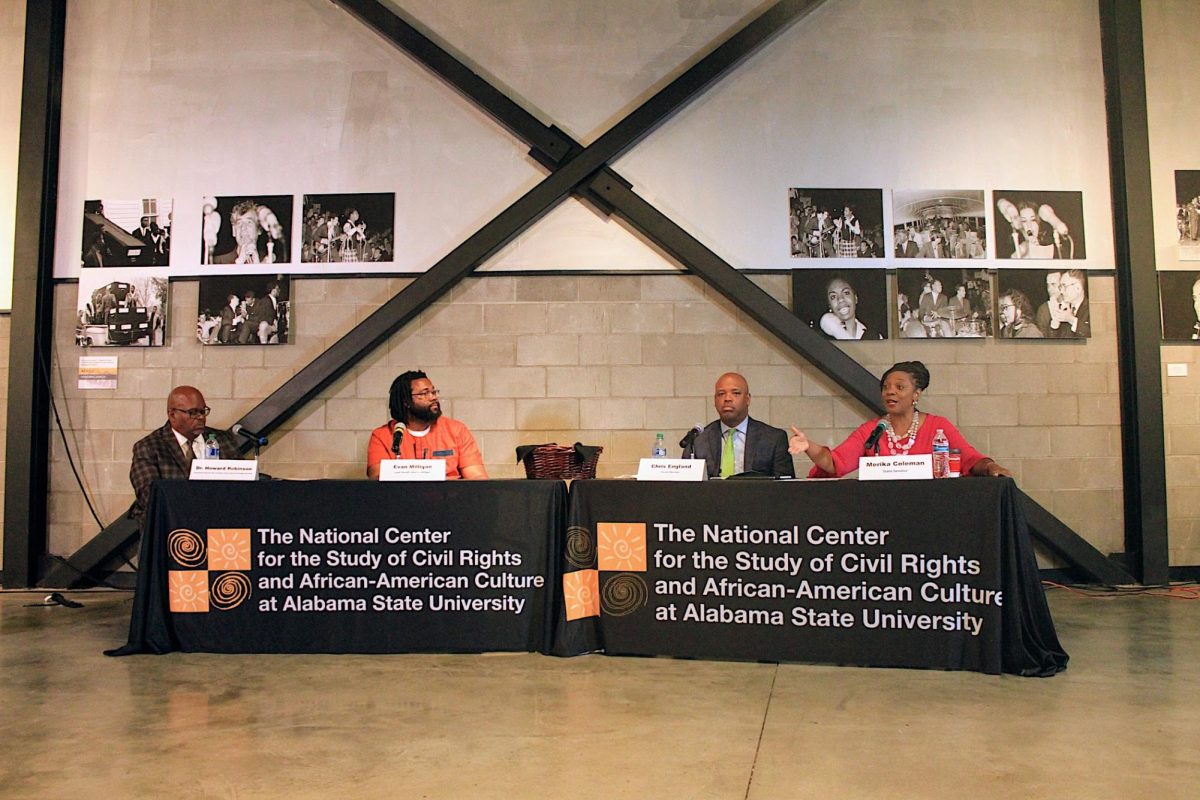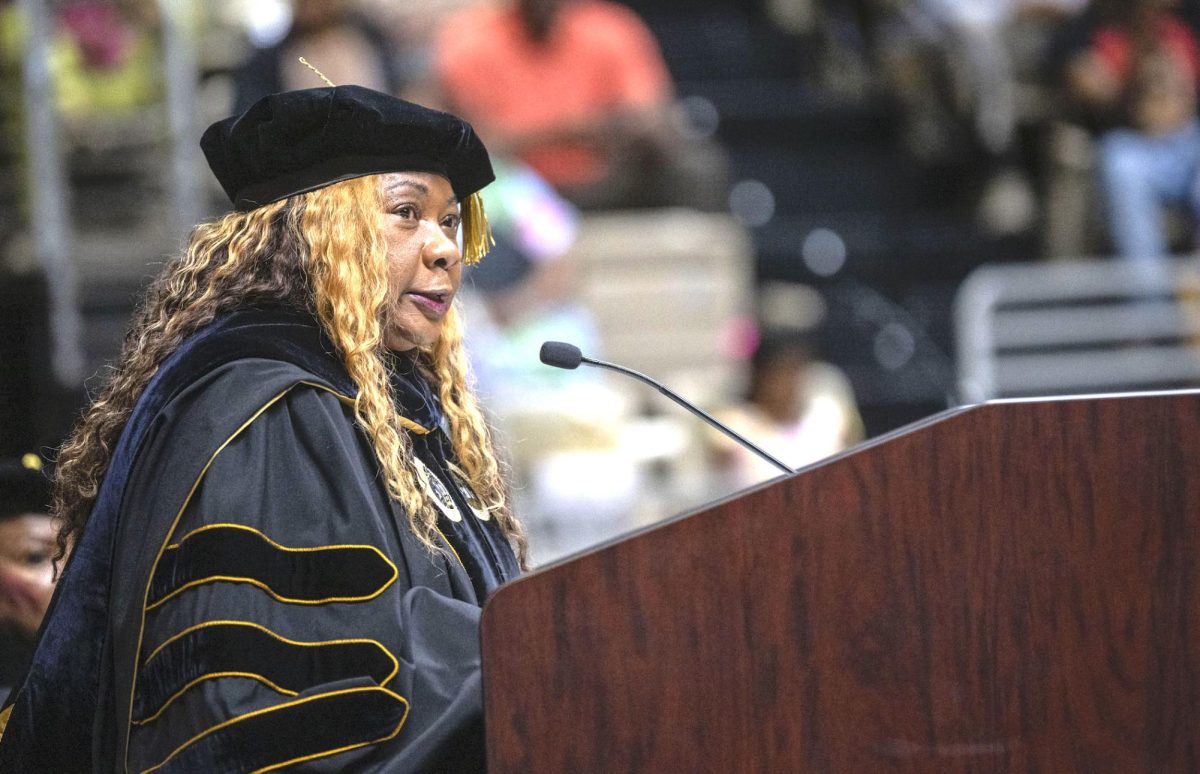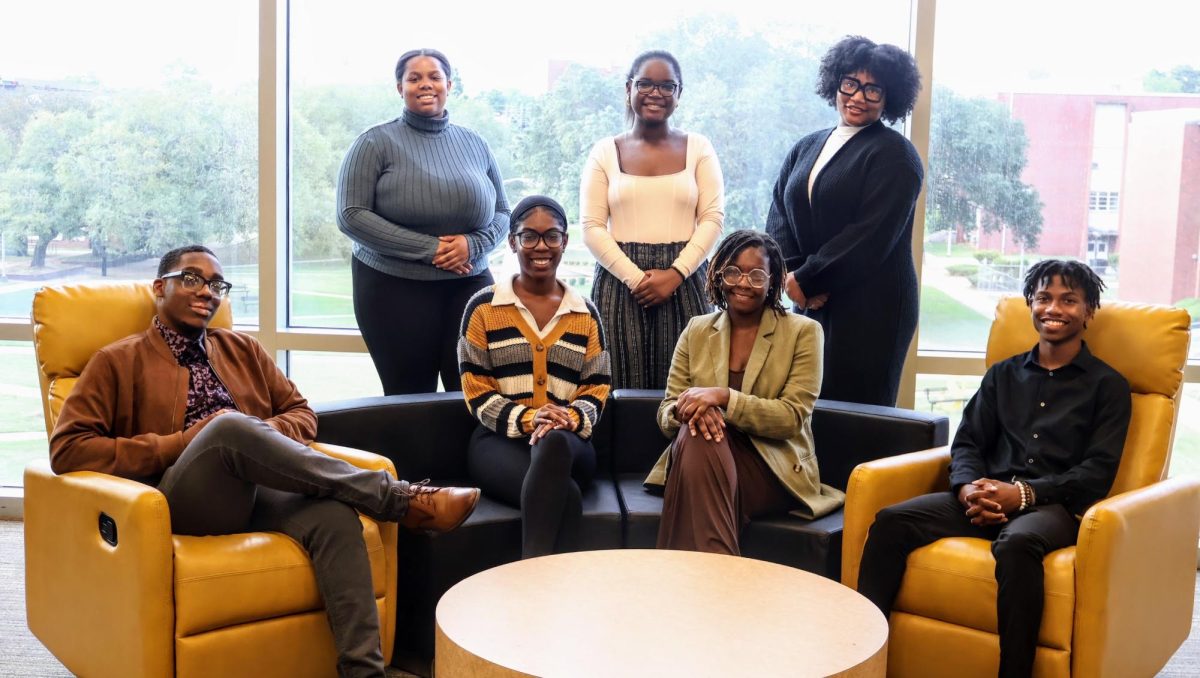The National Center for the Study of Civil Rights and African American Culture hosted a panel discussion on Oct. 4, at the Montgomery Interpretive Center of Selma to Montgomery National Historic Trail to discuss the landmark Supreme Court case, Allen v. Milligan.
The panel was moderated by Howard Robinson, Ph.D., associate director for Archives and Cultural Heritage Services at the Levi Watkins Learning Center. The panel consisted of Evan Milligan, a lead plaintiff in the Allen v. Milligan case, Chris England, former chairman of the Alabama Democratic Party who now serves in the Alabama House of Representatives, and Merika Coleman, a member of the Alabama State Senate who has represented the 19th district since 2022.
On Nov. 4, 2021, Alabama Governor Kay Ivey signed into law a new congressional map with redrawn boundaries for the state’s seven districts. The map included just one majority-Black district, just as it has since 1992, even though Black citizens now comprise over 27% of the state’s population.
Controversy arose when an attempt to redraw these maps were rejected by the state.
In the United States Supreme Court case Allen v. Milligan, opponents of the state’s congressional redistricting map argued it violates Section 2 of the Voting Rights Act because it dilutes the voting power of the state’s Black population. They contend the map limits Black voters’ ability to elect their preferred candidates to just one district by carving up the Black population in surrounding districts to ensure their preferences are drowned out by the white majority.
Abha Khanna, a partner at Elias Law Group in Seattle, represented the respondents in Allen and argued the case before the Court on October 4, 2022. When the Court ruled 5-4 in favor of Khanna’s clients on June 8 many considered the ruling a watershed moment for voting rights proponents throughout the country.
This was a clear act of gerrymandering, which is when one manipulates the boundaries of a body of voters so as to favor one party or class. With the Black voice being restricted to just one district, it was clear that white voters were being prioritized, which did not sit well with respondents.
It was not seen as fair that the maps seemed to purposefully dilute the political power of the Black population of Alabama which has risen to 27% over the years. With the number of majority-Black districts ignored in favor of including districts that are predominantly white, the power of Black voters is greatly diminished.
“The significance of this event is to make sure that the public is adequately educated on the new congressional district maps for the state of Alabama,” said Regina Moorer, assistant professor of the department of history and political science. “These maps come in the aftermath of a long fought legal battle, so it is a legal victory, particularly for black voters in the state of Alabama.”
Moorer attended the event to report on it for the National Center for the Study of Civil Rights and African-American Culture.
“So that even the individuals who are not here have access to a public report that chronicles the legal victory as well as the comments delivered by the representatives in the panels today,” Moorer said.
What this legal victory accomplishes for the Black population of Alabama is that it ensures that there are two majority-Black congressional districts in the state. The panel was held to inform the public what this meant in terms of voting opportunities and options for Black voters.
“But also the significance of the legal challenge that got us to this point,” Moorer said. “So that we don’t just win a case and get the second congressional district, but that we’re actually mobilizing and getting people out to vote and ensure that they capitalize the second Black-majority district.”
Panelist discuss landmark case, Allen v. Milligan
October 7, 2023
(L-R) Associate Director for Archives and Cultural Services Howard Robinson, Ph.D., Evan Milligan, lead plaintiff, State Rep. Chris England and State Sen. Merika Coleman discuss the landmark ruling by the U.S. Supreme Court.
Story continues below advertisement

























